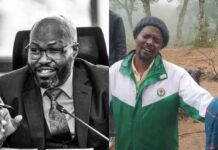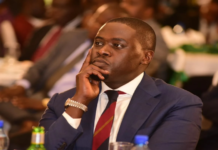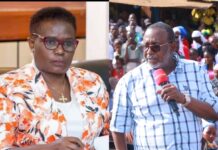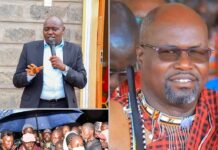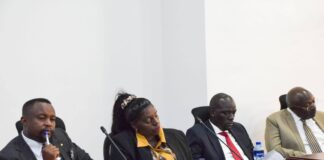The Media Council of Kenya (MCK) has criticised what it described as “unwarranted and unjustified attacks” against Law Society of Kenya (LSK) President Faith Odhiambo, following her acceptance of a role in the government’s newly established Panel of Experts on Compensation of Victims of Protests and Riots.
In a strongly worded statement on Sunday, the council said that sections of the media had unfairly vilified Odhiambo for agreeing to serve as vice chairperson of the panel, arguing that such reporting undermined the principles of fairness and objectivity.
“It is profoundly perplexing and hypocritical that some sections of the media have chosen to vilify Ms Odhiambo for accepting a role to serve the public,” MCK said. “By insisting the LSK President reject the appointment, these outlets are limiting the LSK to pure criticism, ignoring its vital potential to improve governance from within.”
The council noted that lawyers from the society already hold top positions in public institutions, including the Judiciary, the Office of the Director of Public Prosecutions, and the Attorney General’s Office. To demand Odhiambo’s resignation, it said, would be tantamount to asking all LSK members in public service to abandon their posts.
A fierce critic turned government appointee
Odhiambo, who rose to prominence during the Gen Z-led protests of June and July 2024 against the Finance Bill, has found herself at the centre of a political storm. As LSK President, she was among the most vocal critics of the government, organising teams of lawyers to secure the release of arrested protestors, condemning police brutality, and spearheading legal challenges to what she called “Moi-era tactics of abductions and killings”.
At the height of the protests, she rejected a presidential appointment to a debt audit task force, arguing that the role of auditing public debt constitutionally belongs to the Auditor General. That rejection cemented her reputation as an uncompromising critic of President William Ruto’s administration.
Her acceptance of the new role more than a year later has therefore drawn sharp reactions, with critics accusing her of “selling out” the young people she once championed.
Divisions over independence
For her supporters, Odhiambo’s decision to join the panel is pragmatic. She has argued that her involvement is meant to ensure victims’ voices are heard and that the process is carried out with accountability. She has pledged loyalty to Kenyans, not the state, and said she is prepared to resign if her work is frustrated.
But for many of her critics — both lawyers and activists — the move undermines the independence of the LSK and blurs the line between watchdog and collaborator. Some say it risks reducing the society to an appendage of the executive, particularly at a time when public trust in state institutions is fragile.
Media role under scrutiny
The MCK statement also placed the spotlight on the media’s role during and after the protests. The council praised journalists for their courage in documenting abuses and testifying in cases against police officers, but said it was “absurd” to suggest that Odhiambo should have declined to serve simply to maintain opposition to the government.
“The media has an indisputable right to critique government actions and hold those in authority accountable,” the council said. “However, condemning Ms Odhiambo for an anticipated failure before she has even begun her work is cynical and counterproductive.”
A test of balance
The controversy leaves Odhiambo in a precarious position: celebrated by some for taking the fight for victims into official channels, but criticised by others for legitimising a government she once denounced. Whether she can maintain credibility both inside the panel and within the LSK may determine her legacy as one of the most visible figures to emerge from Kenya’s Gen Z protest movement.
For now, the debate reflects a broader dilemma in Kenyan politics: whether to remain outside government as a critic or step inside to shape outcomes, at the risk of being accused of compromise.










